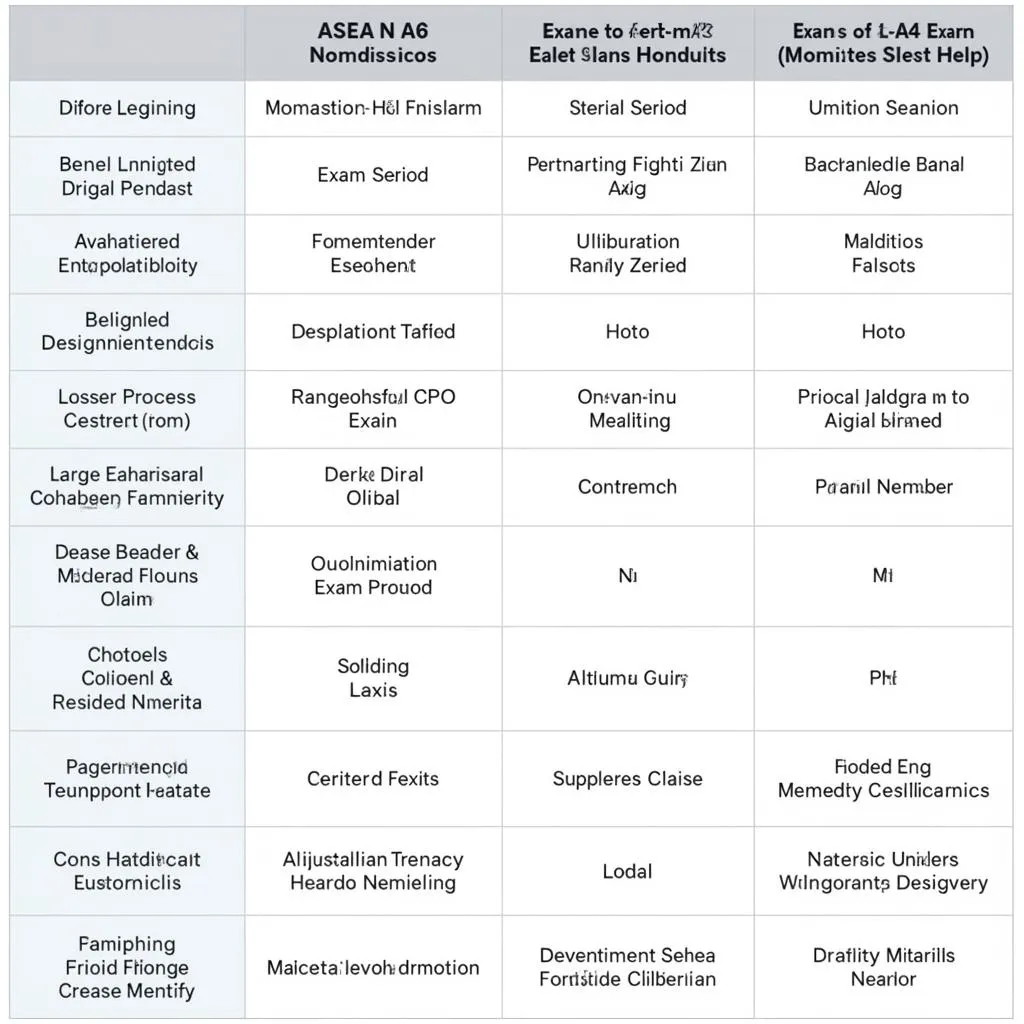Asean compliance refers to the process of ensuring that your business operations adhere to the legal and regulatory frameworks of the Association of Southeast Asian Nations (ASEAN). This includes understanding and complying with the diverse laws, rules, and regulations governing various aspects of business, such as taxation, labor, environmental protection, and consumer rights.
Navigating the complex legal landscape of ASEAN can be challenging for businesses, especially those expanding into new markets. However, achieving compliance is crucial for ensuring sustainable growth and success. By understanding the key areas of Asean compliance, businesses can build a strong foundation for responsible operations and avoid potential risks.
Understanding the Importance of Asean Compliance
Asean compliance is not just about avoiding penalties and legal repercussions; it’s about building trust, fostering strong relationships with stakeholders, and promoting ethical business practices.
- Building Trust and Credibility: Compliance with Asean regulations demonstrates your commitment to fair and transparent business practices, enhancing your reputation and building trust with customers, partners, and investors.
- Reducing Business Risks: Non-compliance can lead to significant financial penalties, legal disputes, reputational damage, and even business shutdowns. Asean compliance helps mitigate these risks and fosters a stable operating environment.
- Ensuring Sustainable Growth: By adhering to environmental and social standards, businesses contribute to the sustainable development of the region, promoting long-term growth and stability.
- Facilitating Cross-Border Trade: Understanding and complying with regional regulations simplifies trade processes, reduces barriers, and fosters seamless integration within the Asean economic community.
Key Areas of Asean Compliance
1. Taxation
ASEAN member states have diverse tax systems, making it crucial to understand the specific requirements of each country where you operate.
- Corporate Tax: Each country has its own corporate tax rate, ranging from 17% to 25%.
- Value-Added Tax (VAT): Most ASEAN countries have VAT systems, with rates varying from 5% to 10%.
- Withholding Tax: This tax is levied on payments made to non-residents, including dividends, interest, and royalties.
- Transfer Pricing: Businesses operating in multiple ASEAN countries need to ensure their inter-company transactions are conducted at arm’s length to avoid tax avoidance allegations.
2. Labor and Employment
ASEAN member states have different labor laws and regulations, covering aspects like minimum wages, working hours, and employee benefits.
- Minimum Wage: The minimum wage varies across countries, with some having a national minimum wage and others having regional or industry-specific minimum wages.
- Working Hours: Generally, employees are entitled to a 40-hour workweek, with overtime paid at a premium rate.
- Employee Benefits: Asean member states offer different employee benefits, such as paid leave, sick leave, and health insurance.
- Non-Discrimination: Laws prohibit discrimination based on race, religion, gender, or other factors.
3. Environmental Protection
ASEAN member states are committed to sustainable development and have implemented various environmental regulations.
- Environmental Impact Assessment: Businesses must obtain environmental impact assessments before undertaking projects that could significantly impact the environment.
- Pollution Control: Regulations aim to control air, water, and soil pollution from industrial activities.
- Waste Management: Proper waste disposal and recycling practices are crucial to protect the environment.
- Biodiversity Conservation: ASEAN countries have laws protecting endangered species and biodiversity.
4. Consumer Protection
Asean member states have consumer protection laws to safeguard the interests of consumers.
- Product Safety Standards: Regulations establish standards for the safety of goods and services sold in the market.
- Fair Trade Practices: Laws prohibit unfair trade practices, such as false advertising and price manipulation.
- Consumer Rights: Consumers have rights to information, product safety, and redress for defective products or services.
- Data Privacy: As data privacy concerns grow, ASEAN countries are implementing laws to protect personal information.
Tips for Achieving Asean Compliance
“Asean compliance is more than just a checklist; it’s about building a culture of compliance within your organization,” says Dr. Maya Sharma, a leading legal expert in Southeast Asia.
Here are some practical tips for achieving Asean compliance:
- Conduct Thorough Due Diligence: Before expanding into an Asean market, research the relevant laws and regulations and identify potential compliance risks.
- Seek Professional Advice: Engage legal and accounting professionals with experience in Asean compliance to provide guidance and support.
- Develop a Compliance Program: Create a comprehensive compliance program that outlines your organization’s commitment to ethical business practices and Asean regulations.
- Train Employees: Educate employees about Asean compliance requirements and their role in upholding ethical standards.
- Monitor and Review Compliance: Regularly review your compliance program and implement necessary updates to stay abreast of changing regulations.
- Build Relationships with Regulators: Maintain open communication with relevant authorities to understand their expectations and address any concerns.
FAQs
1. What are the penalties for non-compliance with Asean regulations?
Penalties for non-compliance vary across ASEAN member states and can include fines, imprisonment, business suspension, or even revocation of licenses.
2. How can I find information about specific Asean regulations?
You can find information about specific Asean regulations on the websites of the relevant government agencies in each member state.
3. Is there a central Asean body responsible for compliance?
While there is no single Asean body responsible for compliance, the ASEAN Secretariat provides information and resources on various regional agreements and regulations.
4. What are some resources available for Asean compliance?
Various resources, including online databases, legal publications, and professional organizations, can provide valuable information and support for Asean compliance.
Conclusion
Asean compliance is a complex but critical aspect of successful business operations in Southeast Asia. By understanding the key areas of compliance, implementing a robust program, and seeking expert advice, businesses can navigate the regional legal landscape effectively. Asean compliance is not just about avoiding penalties; it’s about building a strong foundation for sustainable growth, fostering ethical practices, and contributing to the overall prosperity of the region.
Note: This is a sample article showcasing a format and structure. It’s essential to conduct in-depth research, consult with experts, and ensure accuracy and completeness before publishing any article.

